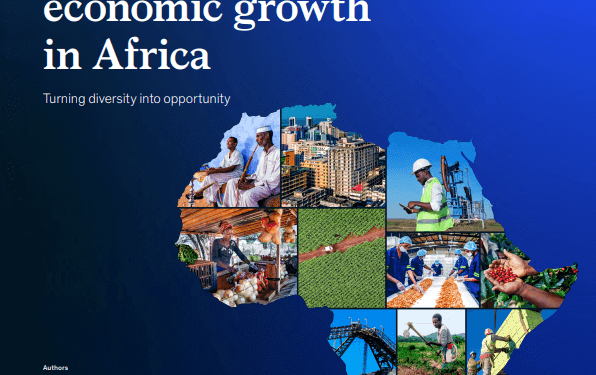Climate change may pose a new challenge to growth on the continent as Africa faces the potential for increasing weather-related acute events and sustained threats to productivity according to the latest report by McKinsey Global Institute titled “Reimagining economic growth in Africa. Turning diversity into opportunity,”
According to the report, more frequent and severe droughts are expected to affect agriculture and manufacturing.
“At the same time, rising sea levels and greater storm severity put coastal cities and key infrastructure at risk of flooding,” the report says.
The report shows that today, 460 million people, or 36 percent of the total African population, are exposed to at least one form of climate hazard such as drought, heat, water stress, or flooding.
By 2050, the number will almost double to 900 million people, or 45 percent of the continent’s population, in a 2°C warming scenario.

Large parts of Africa face a loss of labor productivity related to the potential for reduced effective working hours from rising heat and humidity.
“Impacts will not be evenly distributed across the continent. Extreme precipitation may become more frequent across central parts of Africa, while parts of northern and southern Africa could experience drought in eight out of every ten years,” the report says.
Smallholder farmers and pastoralists will experience large impacts of climate change and will need to adopt new practices in livestock management, soil enhancement, and irrigation to adapt.
“For example, in East Africa, 40 percent of the population could be exposed to agricultural drought over the next 30 years,” the report says.
Beyond rising physical risks, global efforts to decarbonize could affect Africa.
The continent depends on commodity exports, including fossil fuels and minerals, for 16 percent of its GDP.
Some portion of this production will be threatened if the world uses less fossil fuels and ramps up demand for sources of energy that produce lower emissions.
Under McKinsey’s “current trajectory” energy transition scenario, global oil demand could peak by 2027 and then decline, and global gas demand could peak by 2040.
If leading countries accelerate efforts to achieve their net-zero commitments, the transition could be even faster.
Under suchan “achieved commitments” scenario, global oil demand could peak as soon as 2024, while global gas demand could peak around 2030.2
Additionally, mining in Africa emits more greenhouse gases on average than elsewhere in the world, in part due to reliance on coal-generated energy and emissions-intensive underground mining processes. Companies may have to take bold actions to adopt renewables.
In combination, these two effects—lower demand for fossil fuels and loss of market share to lower-emission producers—could result in $150 billion of lost commodity revenue annually on the continent.







